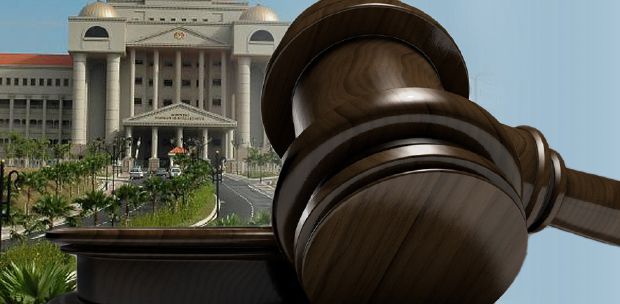Although the power to punish contempt of court is mentioned in Article 126 the Federal Constitution, our law of contempt of court is for the most part grounded on common law. We do not have as yet a Contempt of Court Act in Malaysia, unlike India (1971) and England and Wales (1981).
This was acknowledged by the Minister in the Prime Minister's Department Datuk Takiyuddin Hassan in the Dewan Rakyat on August 4, 2020, when he said that the government is still "studying" the necessity of having a new Act of Parliament on the matter.
My thoughts reverted to Takiyuddin's words as I read news report of the recent "exchange of words" between Datuk Seri Najib Razak's counsel and the prosecution team in respect of the alleged "attack" by Najib on former Bank Negara governor, Tan Sri Zeti Aziz in his Facebook posting.
On January 5, 2020, the prosecution in Najib's current 1MDB-Tanore trial proceedings had asked trial Judge Collin Lawrence Sequerah to issue "a stern warning" to the accused "not to attack its witnesses".
Datuk Seri Gopal Sri Ram (as the senior DPP) had raised the matter before Justice Sequerah after Najib publicly attacked Zeti for allegedly receiving money from 1MDB.
On Dec 29, Najib had in his Facebook posting urged Zeti (who is the 26th prosecution witness) to respond to a blog post that claimed her family had received over RM100 million from Jho Low, which included 1MDB funds.
Blogger Raja Petra Kamaruddin had claimed in his December 28 posting in a Malaysia Today portal that some of Zeti's family members had received over RM100 million from Jho Low.
Zeti had denied all the allegations in a statement issued on New Year's eve. She added that she could not say anything more on the matter as she was a potential witness in Najib's ongoing trial.
Sri Ram told the trial Judge that he had no desire to seek an order of committal against the accused but he asked the judge to give a stern warning to him not to do it again. "We must make it clear that his attack on our witness must stop. We do not accept it," he added.
In his reply, Najib's counsel Tan Sri Muhammad Shafee Abdullah lamented the fact that his client had not been treated faily, akin to putting "a boxer being sent to the ring with both hands tied".
He added that whilst everybody else can say anything about his client (calling him a crook, a 'perompak'), but nobody took any action. He then asked the court to reserve the matter as he would like to make a submission on the issue on Thursday, January 7, to which the court agreed.
On Thursday, after hearing submissions from both sides, Justice Sequerah granted the order sought by the prosecution. "The accused cannot make statements as if the trial is conducted in public domain. No statement must be made in the course of the trial," Sequerah said.
In holding that the Facebook posting against Zeti is tantamount to "an attack against the witness", the Judge said he must therefore issue "a stern warning to the accused not to repeat the action" adding that the court "will take any action necessary to protect the integrity of the court."
What is contempt of court? "Contempt of court" is defined in section 2(a) of the Indian Contempt of Courts Act 1971 as to mean civil contempt and criminal contempt. The former is not relevant for the purposes of this article.
"Criminal contempt" is defined in section 2(c) to mean "the publication" of any matter or "the doing of any other act" which (i) scandalises or tends to scandalise, or lowers or tends to lower the authority of, any court; or (ii) prejudices, or interferes or tends to interfere with, the due course of any judicial proceeding; or (iii) interferes or tends to interfere with, or obstructs or tends to obstruct, the administration of justice in any other manner".
Attacking a witness is clearly criminal contempt, as defined in section 2(c).
Contempt of court can be purged by a full apology, as could be seen in a recent case involving Datuk Seri Ahmad Zahid Hamidi, where he faced 47 charges. The prosecutor had earlier applied to the court to cite Zahid for contempt for making a false statement in court, but the Judge had rejected it, saying that there might have been a miscommunication between counsel and client. He accepted Zahid's apology.
The writer, a former federal counsel at the Attorney-General's Chambers, is deputy chairman of the Kuala Lumpur Foundation to Criminalise War
The views expressed in this article are the author's own and do not necessarily reflect those of the New Straits Times






